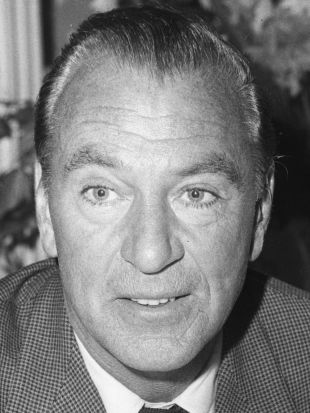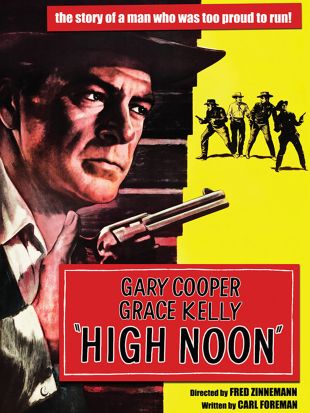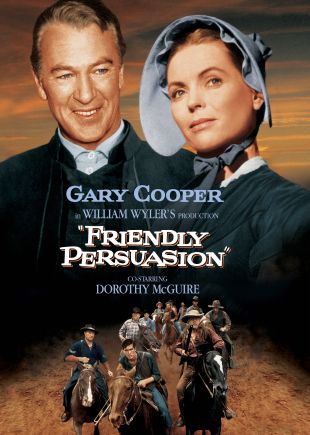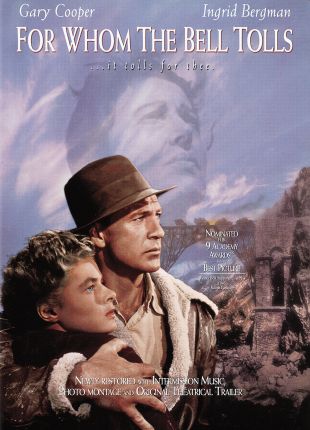American actor Gary Cooper was born on the Montana ranch of his wealthy father, and educated in a prestigious school in England -- a dichotomy that may explain how the adult Cooper was able to combine the ruggedness of the frontiersman with the poise of a cultured gentleman. Injured in an auto accident while attending Wesleyan College, he convalesced on his dad's ranch, perfecting the riding skills that would see him through many a future Western film.
After trying to make a living at his chosen avocation of political cartooning, Cooper was encouraged by two friends to seek employment as a cowboy extra in movies. Agent Nan Collins felt she could get more prestigious work for the handsome, gangling Cooper, and, in 1926, she was instrumental in obtaining for the actor an important role in The Winning of Barbara Worth. Movie star Clara Bow also took an interest in Cooper, seeing to it that he was cast in a couple of her films. Cooper really couldn't act at this point, but he applied himself to his work in a brief series of silent Westerns for his home studio, Paramount Pictures, and, by 1929, both his acting expertise and his popularity had soared. Cooper's first talking-picture success was The Virginian (1929), in which he developed the taciturn, laconic speech patterns that became fodder for every impressionist on radio, nightclubs, and television.
Cooper alternated between tie-and-tails parts in Design for Living (1933) and he-man adventurer roles in The Lives of a Bengal Lancer (1935) for most of the 1930s; in 1941, he was honored with an Oscar for Sergeant York, a part for which he was the personal choice of the real-life title character, World War I hero Alvin York. One year later, Cooper scored in another film biography, Pride of the Yankees. As baseball great Lou Gehrig, the actor was utterly convincing (despite the fact that he'd never played baseball and wasn't a southpaw like Gehrig), and left few dry eyes in the audiences with his fade-out "luckiest man on the face of the earth" speech. In 1933, Cooper married socialite Veronica Balfe, who, billed as Sandra Shaw, enjoyed a short-lived acting career. Too old for World War II service, Cooper gave tirelessly of his time in hazardous South Pacific personal-appearance tours.
Ignoring the actor's indirect participation in the communist witch-hunt of the 1940s, Hollywood held Cooper in the highest regard as an actor and a man. Even those co-workers who thought that Cooper wasn't exerting himself at all when filming were amazed to see how, in the final product, Cooper was actually outacting everyone else, albeit in a subtle, unobtrusive manner. Consigned mostly to Westerns by the 1950s (including the classic High Noon [1952]), Cooper retained his box-office stature. Privately, however, he was plagued with painful, recurring illnesses, and one of them developed into lung cancer. Discovering the extent of his sickness, Cooper kept the news secret, although hints of his condition were accidentally blurted out by his close friend Jimmy Stewart during the 1961 Academy Awards ceremony, where Stewart was accepting a career-achievement Oscar for Cooper. One month later, and less than two months after his final public appearance as the narrator of a TV documentary on the "real West," Cooper died; to fans still reeling from the death of Clark Gable six months earlier, it seemed that Hollywood's Golden Era had suddenly died, as well.



